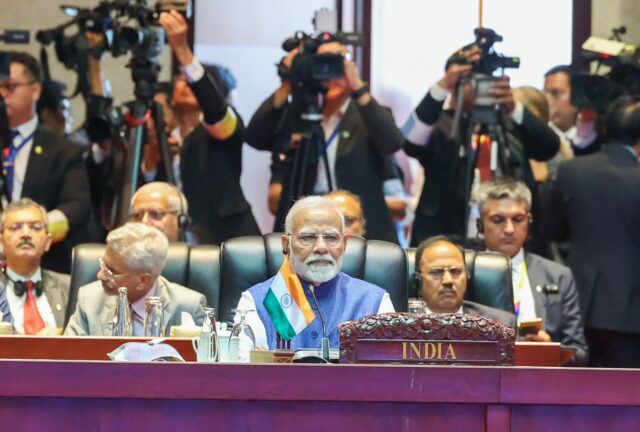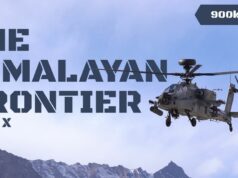
Narendra Modi struck a familiar note during his address at the 19th East Asia Summit in the Laotian capital Vientiane on Friday.
“I come from the land of Buddha and I have repeatedly said this is not the era of war. Solutions to problems cannot come from the battlefield. It is necessary to respect sovereignty, territorial integrity and international laws.”
The same or similar choice of words spoken in the context of Ukraine, but no less relevant in Southeast Asia where an intimidating and aggressive China is seeking to ensure its writ alone runs in what it sees as its backyard.
So when Modi referred to the need for “maritime activities be conducted under UNCLOS, it is necessary to ensure freedom of navigation and airspace,” the inference was clearly the above. And it was a point he sought to drive home:
“Free, open, inclusive, prosperous and rule-based Indo-Pacific is important for the progress of the entire region. A strong and effective Code of Conduct should be created and it should not curb the foreign policy of regional states,” he underscored, adding “Our approach should be one of developmentalism not expansionism.”
He reiterated the centrality of Asean in India’s vision for the region, underlining the “deep similarities between Delhi’s ‘Indo-Pacific Ocean’s Initiative and the Asean Outlook on Indo-Pacific.”
He struck a note of support on Myanmar: “We support the Asean approach on the situation in Myanmar. We also support the Five Point Consensus. At the same time we believe that it is important to maintain humanitarian assistance.”
Calling for the restoration of democracy in Myanmar, he said “We believe for this Myanmar should be engaged not isolated.”
The annual East Asia summit brings together the heads of state or governments of 18 countries (10 from Asean, Australia, China, India, Japan, New Zealand, South Korea, Russia and the US) to debate and discuss issues of strategic and regional importance. It generally comes after the Asean-India Summit and the discussions provide valuable policy inputs for participating heads of state.
Thirty eight years in journalism, widely travelled, history buff with a preference for Old Monk Rum. Current interest/focus spans China, Technology and Trade. Recent reads: Steven Colls Directorate S and Alexander Frater's Chasing the Monsoon. Netflix/Prime video junkie. Loves animal videos on Facebook. Reluctant tweeter.




